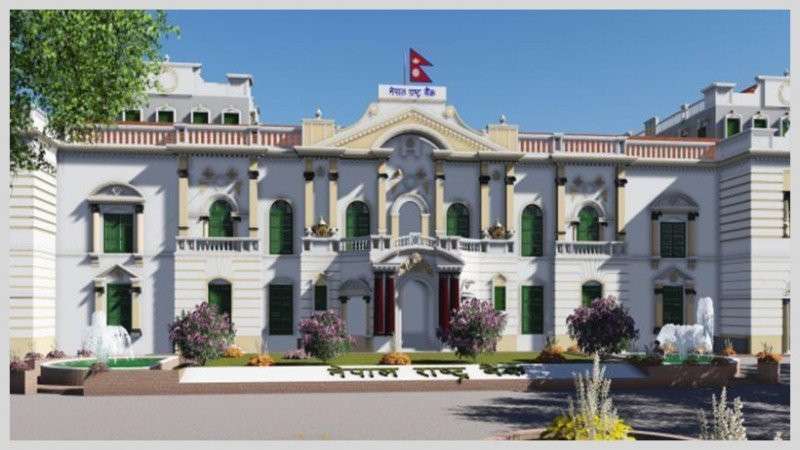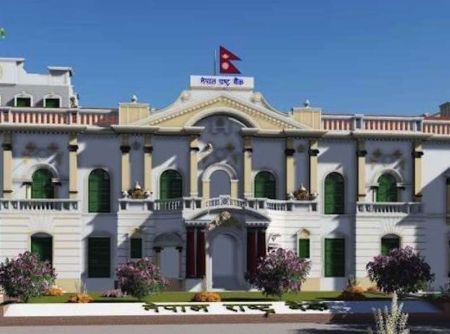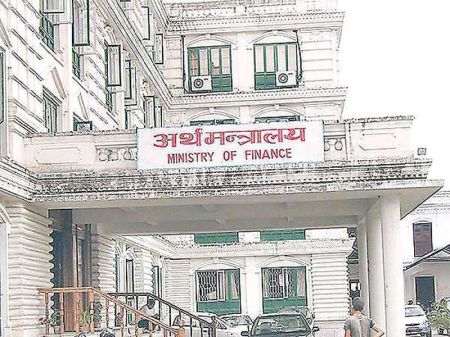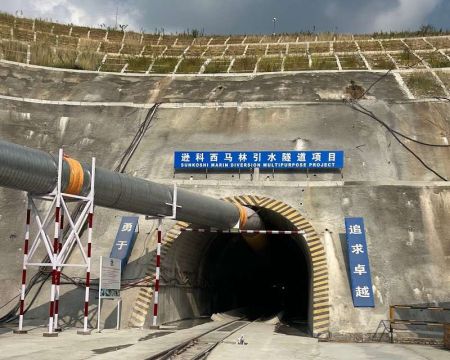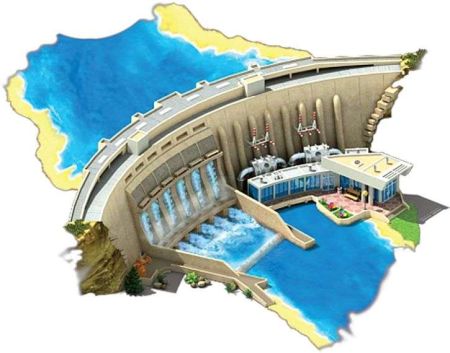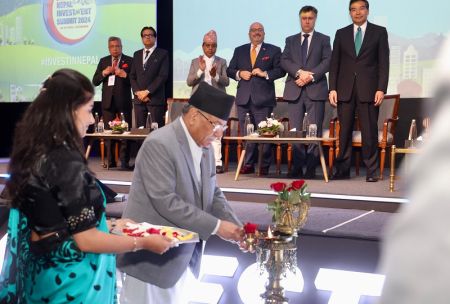April 6: Nepal Rastra Bank is under pressure due to the continuous decline in foreign exchange reserves. The central bank has failed to improve the situation even after making policy arrangements to stop the decline in foreign exchange reserves.
During last July, the country’s foreign exchange reserves stood at Rs 1.39 trillion. It has come down to Rs 1.17 trillion in January this year. Foreign exchange reserves are declining due to decline in foreign exchange earnings including remittances and also because of high imports.
Although the Nepal Rastra Bank (NRB) has adopted a policy of discouraging imports in the second quarter of the current fiscal year (FY) to stop the decline in foreign exchange reserves, it has not made any substantial effects.
Meanwhile, NRB on Monday summoned the chief executive officers (CEOs) of commercial banks and verbally instructed them not to open LC (letter of credit) for import of luxurious goods.
However, deputy spokesperson of NRB Narayan Prasad Pokhrel claims that the current state of the economy is not so weak as it seems to be. "Our foreign exchange reserves have not diminished much due to the policy intervention of the central bank," he said, "There's no need to panic, we're just trying to be alert."
Pokharel informed that since NRB is not the body responsible to stop imports, it has not instructed to stop imports but there was only a general discussion on loans provided by banks for imports. "We can't stop the import," he said.
He said that the NRB had discussed the loan situation with the CEOs of the bank and urged them to be cautious while opening LC.
NRB had adopted a policy of discouraging loans for import from the second quarter of the current fiscal year. On November 26, 2021, the central bank set a limit for import of silver. As per the decision, commercial banks cannot import silver more than USD 35,000 at a time. The bank also issued a directive which reduced the gold import quota by 50 percent and to discourage the import of luxury goods. The central bank also made it mandatory for having a cash margin of 100 percent for opening LCs to import 47 types of goods.
Similarly, in order to increase the foreign exchange reserves, the NRB has made the provision of opening an account in dollars for non-resident Nepalis but the foreign exchange reserves have not increased.
Bankers, on the other hand, have been suggesting to ban imports of luxury goods. "The demand for LC is high now. We have no right to stop it. If you want to stop it, it is time to stop it," said Anil Keshari Shah, CEO of Nabil Bank.
Despite the negative economic indicators, the government has so far been criticized for failing to adopt a policy to protect the economy.


